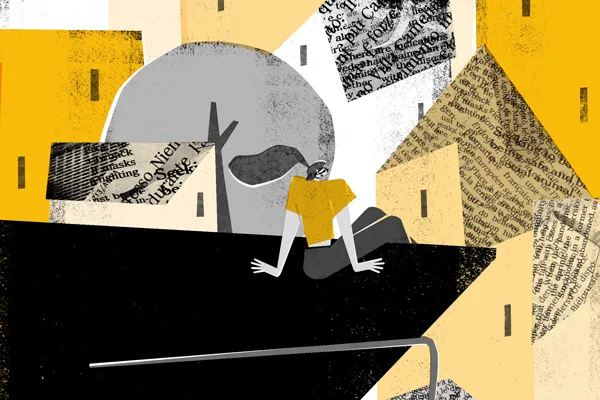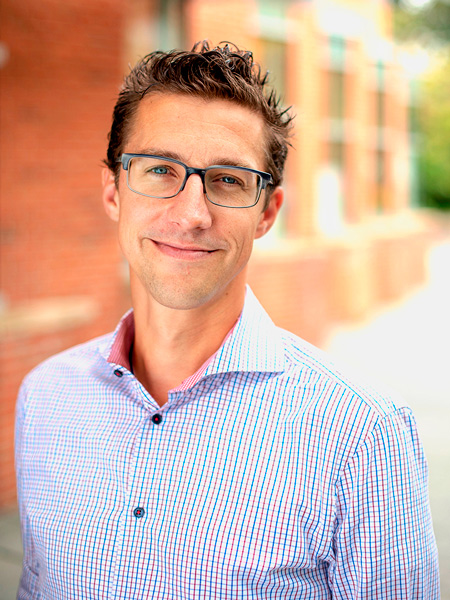‘A More Appealing Education for All’
Smith Quarterly
How might the new policy impact student decisions before and after college? An economics professor weighs in.

Published April 1, 2022
The burden of student loans is an important issue affecting millions of students and families nationwide. At Smith, even though we are fortunate to have extremely generous financial aid packages, in recent years the average Smith student on financial aid graduated with $19,000 of student debt. While this is lower than the national average, and relatively small compared to the increased value of lifetime earnings resulting from a college education, it is large enough to potentially place real constraints on alumnae work and academic decisions.
For example, while student loans can reduce credit constraints and enable college attendance, student debt also can affect post-graduation choices. Student debt that must be repaid in the immediate years after graduation may lead students to focus on finding the highest-paying job, rather than the job that is the best match. In addition, individuals may be debt averse—they seek to avoid student debt, even if borrowing for college would be a rational decision given the return on investment of obtaining a college degree.
Both of these factors are likely to have greater effects on students from economically vulnerable backgrounds who need to take on loans. Students with greater parental resources may have more freedom to explore a wide variety of jobs after graduation. In addition, survey evidence suggests that women and students from less-advantaged families are more likely to be debt averse. While moving from loans to grants is likely to make a Smith education more appealing for all students, it might be particularly effective in recruiting these students, and could have a larger impact on their post-graduation choices.
Economists Jesse Rothstein and Cecilia Rouse have found that this policy change has important effects on student decisions. Replacing loans with grants makes financial aid recipients less likely to work in industries with higher average salaries and increases the probability that they take up jobs considered to be in the “public interest,” particularly in the nonprofit, government, and education sectors.
On a personal note, I am an alumna who is very grateful for the extremely generous financial aid package that allowed me to attend Smith. But, I graduated in the early 1990s with significant student loans and did not finish paying them off until well into my career as a college professor. I’m thrilled that future generations of Smithies will not have that same burden.
Out: Shame, Stigma In: Passion, Potential
Faculty members’ quick takes on the promise of life without student loans.
 “The anthropologist David Graeber once noted that the concept of debt tends to transform an economic arrangement into a matter of morality—good people are supposed to fulfill their obligations, including paying back their debts. But as the cost of college has skyrocketed these last decades, student loans have become a source of both economic distress and personal shame. Though structural changes to our economy have made loan repayment so difficult for so many, people tend to experience these difficulties as highly stigmatized personal failings. Smith’s decision to replace loans with grants in its financial aid packages is going to ease a lot of financial distress for sure, but it will also help future generations of Smithies escape the shame and stigma that can accompany student loan debt.”
“The anthropologist David Graeber once noted that the concept of debt tends to transform an economic arrangement into a matter of morality—good people are supposed to fulfill their obligations, including paying back their debts. But as the cost of college has skyrocketed these last decades, student loans have become a source of both economic distress and personal shame. Though structural changes to our economy have made loan repayment so difficult for so many, people tend to experience these difficulties as highly stigmatized personal failings. Smith’s decision to replace loans with grants in its financial aid packages is going to ease a lot of financial distress for sure, but it will also help future generations of Smithies escape the shame and stigma that can accompany student loan debt.”
Timothy Recuber, assistant professor of sociology
 “I am still paying off student loans from when I was an undergrad here in 2004–08. My Smith debt has affected every major life-stage decision after graduation, from when to buy a house to when to get married to when to have kids. The move to abolish loans in favor of grants is absolutely essential to setting Smith students up for success upon graduation, especially for those who might have co-signer support in taking out loans but then circumstances change and that same level of support is unavailable when they enter repayment.”
“I am still paying off student loans from when I was an undergrad here in 2004–08. My Smith debt has affected every major life-stage decision after graduation, from when to buy a house to when to get married to when to have kids. The move to abolish loans in favor of grants is absolutely essential to setting Smith students up for success upon graduation, especially for those who might have co-signer support in taking out loans but then circumstances change and that same level of support is unavailable when they enter repayment.”
R. Jordan Crouser ’08, associate professor of computer science
IMAGINE WHAT’S POSSIBLE
What does it mean for a new generation of Smithies to graduate free from crushing student debt?
Read on to see.

FROM THE PRESIDENT
A Bold Investment in Financial Aid
How did the decision to eliminate loans come to be? President McCartney offers a behind-the-scenes look at one of the most consequential decisions of her tenure.

EQUITY OF OPPORTUNITY
‘Smith Is Decreasing Barriers to Entry’
If education has the potential to be transformational, shouldn’t it be accessible to all? A sociologist says yes.

DREAMS WITHIN REACH
‘How Will You Ever Afford to...?’
And other questions an education professor anticipates hearing less of now that loans will no longer deter students from pursuing a career like teaching.
This story appears in the Spring 2022 issue of the Smith Alumnae Quarterly.
A More Flexible Future
The new policy will allow students to focus on the present and give them more options after graduation.
Vanessa Nicole Silva-Burgos ’23
What do you think of Smith’s decision to eliminate loans from its financial aid packages?
It’s a great decision that focuses on equity and justice to help reduce the debt and pressure that students on the margins, particularly BIPOC students, face. I also think it’s a step in the right direction to make Smith more of an institution that makes diversity, inclusion, access, and equity core to its campus values. I see this policy as one of many that need to occur to get us closer to being a need-blind institution to sustainably and positively impact the lives of generations of students who cannot afford to be here but deserve to be here.
How will this impact your academic plans and career goals?
As a first-generation Posse scholar, I am grateful for the scholarship I currently have. At the same time, there is a large gap every year I scramble to close with room and board and other costs outside of tuition. The policy has the potential to allow me to focus on the present, on my studies, health, and goals, and maybe even allow me to continue studying for longer in graduate studies.
Photograph by Jeff Baker
Illustrations by Fernando Cobelo
